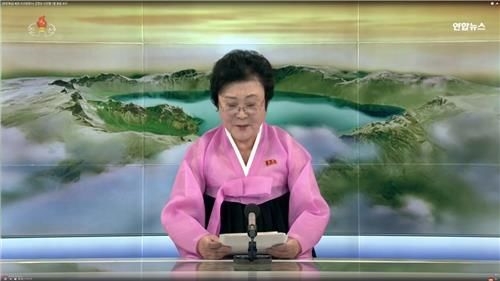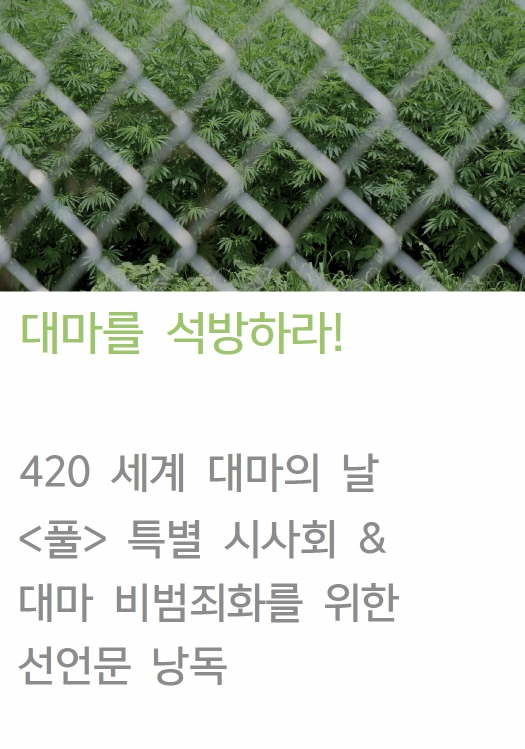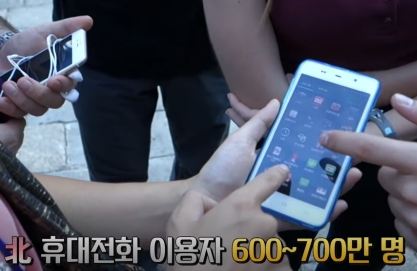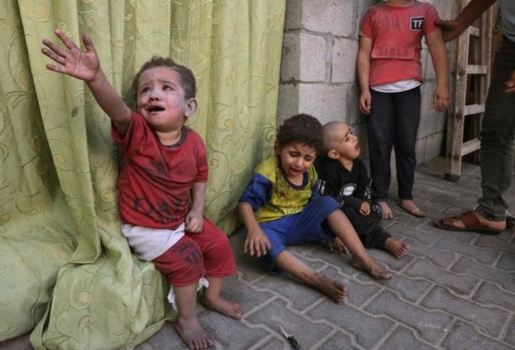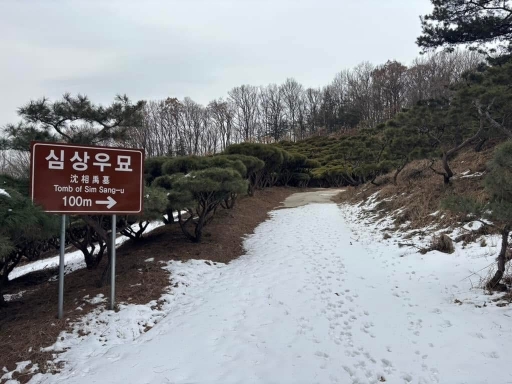뉴욕타임즈 편집장에게 보내는 동패고학생의 편지 - 위안부에 대한 일본의 답변을 보고
수정 : 2019-08-08 15:03:23
뉴욕타임즈 편집장에게 보내는 동패고학생의 편지
- 위안부에 대한 일본의 답변을 보고
<편집자주>
파주 동패고 학생이 뉴욕타임즈 편집장에게 편지를 썼다. 근래 뉴욕 타임즈에 기재된, 위안부에 대한 일본의 대답이 실린 기사를 보고, 편지를 쓴 것이다. 일본의 '표현의 부자유전 그후'에 전시되었던 소녀상마저 가림벽으로 폐쇄하는 일본의 행태에 분노하여, 파주학생의 글을 싣는다.
임다현 학생의 편지를 보며 '역사의 과제'를 해결하지 못한 어른으로서 부끄러움과 함께, 깨어있는 의식을 가진 건강한 청소년들이 역사를 정의롭게 할 것이라는 기쁨이 일었다.
임다현 학생을 응원하며, 전문을 싣는다. (임다현학생은 영어로 편지를 썼고, 한글은 번역한 것이다. 한글은 영문 뒷쪽에 있다)

임다현 학생
To the Editor of The New York Times
I am a 17-year-old girl from Korea. I recently read Japan’s responds of war time sex slaves updated on The New York Times, and I would like to talk about the inner part of Japanese military sexual slavery forced mobilization which world don’t know much involving why Koreans keep condemn Japan in spite of their repeated apologies, carefully.
The formal sex slaves and Koreans don’t feel like they have received sincere apologies from Japan because they consider Japan’s previous apologies as perfunctory ones. Apologies which can be considered sincere involve efforts to acknowledge the wrongs of the past and to remember and reflect on them. It is natural for people to perceive and accept the apology only when words and deed are in accord. However, innumerable Japanese don’t have sense of guilt or knowledge of Japanese military sexual slavery forced mobilization as we can see in the numerous instances; Japanese broadcasters ridiculing the victims and saying words that cannot be taken as they are guilty of Japan’s previous deeds, on medium and tv; because they believe Japanese governments words which says that the brothels were legal and is already a dead issue because they had apologized-in spite of the historical evidences including the video of the Japanese, massacring Korean, Chinese sex slaves and throwing away in China in 1944 which was discovered in 2018. It is because no movement has been made from the government of confessing the Japanese military sexual slavery was a forced mobilization and their horrible deeds inflicted to the victims to make the people reflect on themselves.
The japanese recently scoffed Koreans who commemorated '3.1 Independence movement day' ;the day Koreans did major nonviolence demonstration against Japanese colonization in 1919- badly, justifying their colonization. They are trying not to face, nor admit their clear sin despite of the apparent faults of them.
From this we can see how japanese government(known for cooperating with far-left politics) have inculcated wrong knowledge to the public.
To be specific of why , Abe's cabinet has canceled and made conflicting declarations and actions about his earlier apology.
In October 2006, Prime Minister Abe apologized at the Yasukuni Shrine which enshrined more than 1,000 criminals, unloaded in the war. And two years after, Abe denied about the fact that there were comfort women during the Second World War II. Abe also stated what disagreed with the Kono statements of Japan – a statement of apology which Minister Yohei Kono made through an official investigations and evidences in 1993, which admitted that there were forced interventions from the Japanese government about Japanese military sexual slavery- and showed actions that seemed he was likely to revise it.
Moreover, Abe tries to hide Japan’s savageries by deleting the content of the Japanese comfort women out of Japanese history textbooks and distorting the history. Should Korean comfort women be satisfied with the formal apology from the government that acts contradictory to what it sees as a repentant government for Japan’s atrocities?
In the article, it states that Japan worked for comfort women’s spiritual healing. The action should be based on their own recognition and reflection of Japan's atrocities. But we have great doubts about the sincerity of their apology for the contradictory attitude of trying to hide them. Abe also said first-class war criminals are "not criminals under Japanese law," in his statement, and said "The Abbe cabinet doesn't have to keep the Murayama statements." He also asked questions about the definition of apology, and said neither global organization nor academia can make the obvious answer to what we call an "invasion", and what happens between countries depends on who sees it. Moreover, Japan gave great insult and humiliation by making the Yasukuni Shrine where they enshrined Japanese war criminals and even Korean forced laborers who were drafted. It is natural for Koreans to doubt whether Japan who shows no remorse for the war, truly feels sorry for the Japanese military sexual slavery problem.
Japanese government has an official apology and Japanese military sexual slavery of forced labor are explicitly said whether he had been made in some way and until you stop teaching a distorted history.
Plus, until the government of Japan apology, reveal how the Japanese military sexual slavery of forced labor is made, and stop teaching distorted history.
The actions above indicate that the previous apologies were perfunctory ones which did not come from their heart. Moreover, Japan actions which justify their brutality and insult Korean victims can’t be connived nor accepted, regardless of whether an apology had been made before or not.
For this inconsistency, the victims did not feel that they had truly received apologizes, and did not welcome the compensation.
As I’ve mentioned already, what they want is not money but sincere apology. The indemnity was received by the old government, which impeached by Koreans, without communication with the comfort women and the people. It is true that 29 victims received the money, but it was unrelated with their intent since there are doubts that foundations have conciliated the victim’s family. There are also cases of unilateral deposit in spite of the victim’s rejection. Kim Bok-deuk , one of the victims said in person that she had received 100million won without knowing anything. It is Korea’s foundation‘s fault to cause confusion, but the important essence we have to know here is that the comfort women don’t want the indemnity, and want Japan to get back the money and apology instead. Korea’s Japanese comfort women have declared lots of time that the act of Japan- giving reparations without apology- just gave insult to them. No one would think the circumstance of the state to come forward and make a deal which the victims did not agree on is right. Therefore, due to the storm of protest of the people and the comfort women, the new government policy is set to give back the money to Japan, but Japan is refusing it and only try to finalize the problem. We are learnt that apologies are not given, but are received ones. Instead of dismissing it as a finished matter, I think it is worth showing in Japan, which is called an advanced country, to apology dozens of times until the victims' mind are relaxed. Just like Germany, which is always apologizing and reflecting themselves, in spite of the decades after the end of the world war.
The reason why Korea’s Japanese comfort women want an apology is that they want to make it clear that it wasn't their fault-it is true that the perceive of the rape victims is not so good till now- and to forgive the perpetrators. If this ‘Japan’s deny of the existence of comfort women & distorting historical facts problem’ be buried under the name of delivering payment-paid before receiving a sincere apology thus gave insult-, Japan’s opportunity to be forgiven would be lost forever. Japan should make an apology and it must not end with perfunctory words and compensations if Japan truly have the guilt, and be consistent with it. The government of Japan need to stop distorting the history and allow the Japanese to realize Japan's wrong doings and reflect on it for a long time through concrete, practical actions.
Korea’s request on apology; which connotes all those wills written above-for the former sex slaves will go on until then.
뉴욕타임즈 편집장에게
저는 한국에서 살고있는 17살 소녀입니다.
저는 뉴욕타임즈에 실린 일본군 성노예 문제에 대한 일본의 반응을 읽게 되었고, 세계 사람들이 잘 알지 못하는 강제동원 된 일본군 성노예의 내밀한 부분과, 왜 한국이 계속된 일본의 사과에도 불구하고 일본을 비난하는지에 대해서 얘기하고 싶습니다.
성노예 피해자들과 한국인들은 일본의 사과를 진실된 사과라고 생각하지 않습니다. 이전의 사과들을 모두 형식적인 사과일 뿐이라고 여깁니다. 진심으로 여겨지는 사과는 과거의 잘못을 인정하고 기억하며 반성하려는 노력을 수반합니다. 말과 행동이 일치해야 사람들이 사과를 사과로 인식하고 받아들일 수 있습니다. 하지만 수많은 일본인들은 죄책감도, 강제동원 된 일본군 성노예에 대한 지식도 갖고 있지 않습니다.
많은 사례가 있습니다. 일본 방송들은 텔레비전 등 매체를 통해 피해자들을 조롱하고 일본의 과거 행적에 대해 유죄라고 인정하지 않는다는 이야기들을 내보냅니다. 일본 정부가 일본군 ‘위안부’는 합법적이고 이미 끝난 문제라고 말하는 것을 믿기 때문입니다.
2018년에 발견된 일본의 비디오를 비롯한 한국인 학살, 1944년의 중국인 성노예 등 각종 역사적 증거들에도 불구하고 일본군 성노예가 강제동원이며
일본인들은 최근 한국의 독립 운동 기념일인 3.1절을 기념하는 사람들을 비웃었습니다. 그 날 한국인들은 1919년 일본의 식민지화와 그를 정당화하는 것에 반대하는 날이었습니다. 그들은 그들의 명백한 잘못에도 불구하고 그들의 명백한 죄를 직시하거나 인정하지 않으려고 애쓰고 있습니다. 이를 통해 우리는 일본 정부가 어떻게 대중에게 잘못된 지식을 주입했는지 알 수 있습니다.
그 이유를 구체적으로 설명하자면, 아베 내각은 그의 이전의 사과에 대해 상반된 선언을 하고, 사과 행동을 취소하고 있습니다. 2006년 10월, 아베 총리가 전쟁 중 야스쿠니 신사에 봉안된 1000명 이상의 전쟁범죄자들 사과했습니다. 그리고 2년 후, 아베는 제2차 세계 대전 중 있었던 일본군 ‘위안부’에 대해 부인했습니다. 아베는 또한 고노 정부의 성명서에 동의하지 않는다고 말했습니다. 1993년 고노 요헤이 장관의 공식적인 수사와 자료를 바탕으로 일본 정부가 일본군 ‘위안부’를 강제 동원하는 데에 개입했다고 인정한 사과 성명서를 아베는 변경하고자 하는 것처럼 보였습니다.
아베는 심지어 일본 역사 교과서에 일본군 ‘위안부’ 여성들의 콘텐츠를 삭제함으로써 일본의 만행을 숨기고 왜곡하려 하고 있습니다. 한국의 ‘위안부’ 여성들은 모순된 행동을 하는 정부를 일본의 잔학 행위에 대해 반성하는 것으로 보고, 그들의 사과에 만족해야 하나요?
뉴욕타임즈 기사는 일본이 ‘위안부’여성들의 정신적 치유를 위해 일했다고 말합니다. 이번 조치는 일본의 만행을 일본 스스로 인정하고 반성하는데 바탕을 두어야 합니다. 그러나 ‘위안부’에 대해서 숨기려고 노력하는 모순된 태도는 그들의 사과가 진실 되지 않다는 의심을 하게 만듭니다. 아베 총리는 담화에서 1급 전범은 일본법상에서 범죄자가 아니라며 무라야마 담화를 지킬 필요가 없다고 합니다. 사과의 정의에 대해 질문을 던지고, 세계 어느 기관이나 학계에서도 한국이 말하는 ‘침략’에 대해 분명히 답할 수 없다며 국가 간에 일어나는 일은 누가 보느냐에 달려 있다고 말하기도 했습니다. 게다가 일본은 야스쿠니 신사에 일본의 전범들과 일본에 의해 징용을 당해 죽음을 맞은 한국인들을 합사시키면서 큰 모욕과 굴욕을 주고 있습니다. 일본이 전쟁에 대해 반성하고, 일본군 성노예 문제에 대해 미안하게 생각하는지에 대해 한국인들이 의심하는 것은 당연합니다.
앞서 말한 행동들은 일본의 사과가 형식적이기만 한 사과였다는 것을 보여줍니다. 더욱이 자신들의 잔혹성을 정당화하고 한국인 희생자를 모욕하는 행동은 사과를 했다 하더라도 묵인되거나 받아들여질 수 없는 것입니다.
이런 모순들 때문에 피해자들은 진심으로 사과를 받았다고 느끼지 않았고, 보상을 환영할 수 없었습니다. 말했듯이, 피해자들이 원하는 것은 돈이 아닌 진심 어린 사과입니다. 환영 받지 못한 보상 역시 독재 정치를 해오다 탄핵되었던 오래된 정부가 일본군 ‘위안부’ 피해자와 소통하지 않은 채 독단적으로 받아들인 것입니다. 29명의 피해자들이 돈을 받은 것은 사실이지만, 재단이 피해자 가족을 회유했다는 의혹 또한 존재합니다. 피해자의 거절에도 불구하고 일방적으로 입금한 사례 역시 있습니다. 피해자 중 한 명인 김복득씨는 아무것도 모른 채 1억 원을 받게 됐다고 증언했습니다. 이런 혼란을 야기한 것은 한국 재단의 잘못이지만, 여기서 중요한 점은 일본군 ‘위안부’ 피해자 여성들이 원하는 것은 금전적 보상이 아니라는 것입니다. 그들은 그 돈을 돌려주고, 사과를 받길 원합니다. 한국의 일본군 ‘위안부’ 여성들은 일본의 행위에 대한 사과 없이 배상금만을 주는 것은 그들에게 모욕일 뿐이라고 공표했습니다. 국가가 피해자들의 동의 없이 거래를 성사시키는 것이 옳다고 생각하는 사람은 없을 것입니다. ‘위안부’ 여성들의 폭발적 항의에 따라서, 새로운 정부의 정책은 일본에게 배상금을 다시 돌려주는 것이 되었습니다. 일본은 이를 거부하고 문제를 끝내기 위한 노력만 하고 있습니다.
우리는 사과가 받아들여지기 전까지는 잘못이 용서되지 못한다는 걸 알고 있습니다. 선진국이라 불리우는 일본은 일본군 ‘위안부’ 문제를 완결된 것으로 치부하기보다는 피해자들의 마음이 편해질 때까지 수십 차례 사과하는 모습을 보여줄 만하다고 생각합니다. 세계대전이 끝난 뒤 수십 년이 지났음에도 항상 사과하고 반성하는 독일처럼 말입니다.
한국의 일본군 ‘위안부’ 피해자들이 일본의 사과를 원하는 이유는 그 일이 피해자들 자신의 잘못이 아니라는 것을 확실하게 하고 싶어 하기 때문입니다. 강간 피해자들에 대한 인식이 좋지 않은 것이 현실이고, 가해자들을 용서하는 것도 마찬가지입니다.
만약 이 진실된 사과 없이 모욕적으로 지불된 배상금 때문에 ‘일본의 ’위안부‘ 강제동원 부정 및 역사왜곡 문제’가 묻히게 된다면, 일본이 용서 받을 수 있는 기회는 영원히 사라지게 될 것입니다. 일본은 사과해야 합니다. 일본이 정말로 죄책감을 느낀다면, 형식적인 말과 배상금으로 끝내는 것이 아닌, 그들의 말과 일관된 모습을 보여야 할 것입니다.
일본 정부는 역사 왜곡을 중단해야 합니다. 일본인들이 일본의 잘못된 행동을 깨닫고 구체적이고 실질적인 행동을 통해 오랫동안 반성할 수 있도록 할 필요가 있습니다.
일본이 상기된 사실을 포함한 사과 요구에 응할 때까지, 과거 일본군 성노예 피해자들은 계속 나아갈 것입니다.
감사합니다.
신문협동조합「파주에서」 모든 컨텐츠를 무단복제 사용할 경우에는 저작권법에 의해 제재를 받을 수 있습니다.


